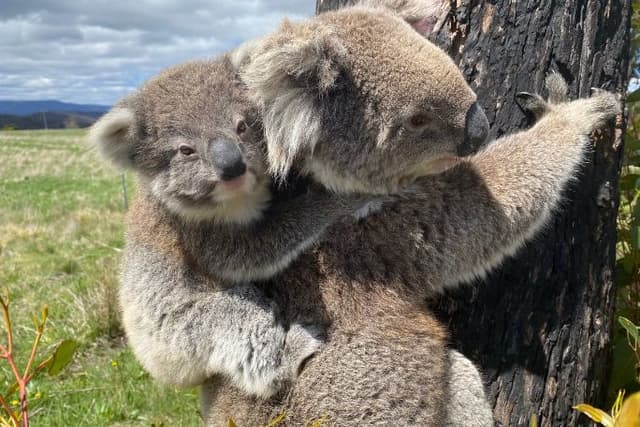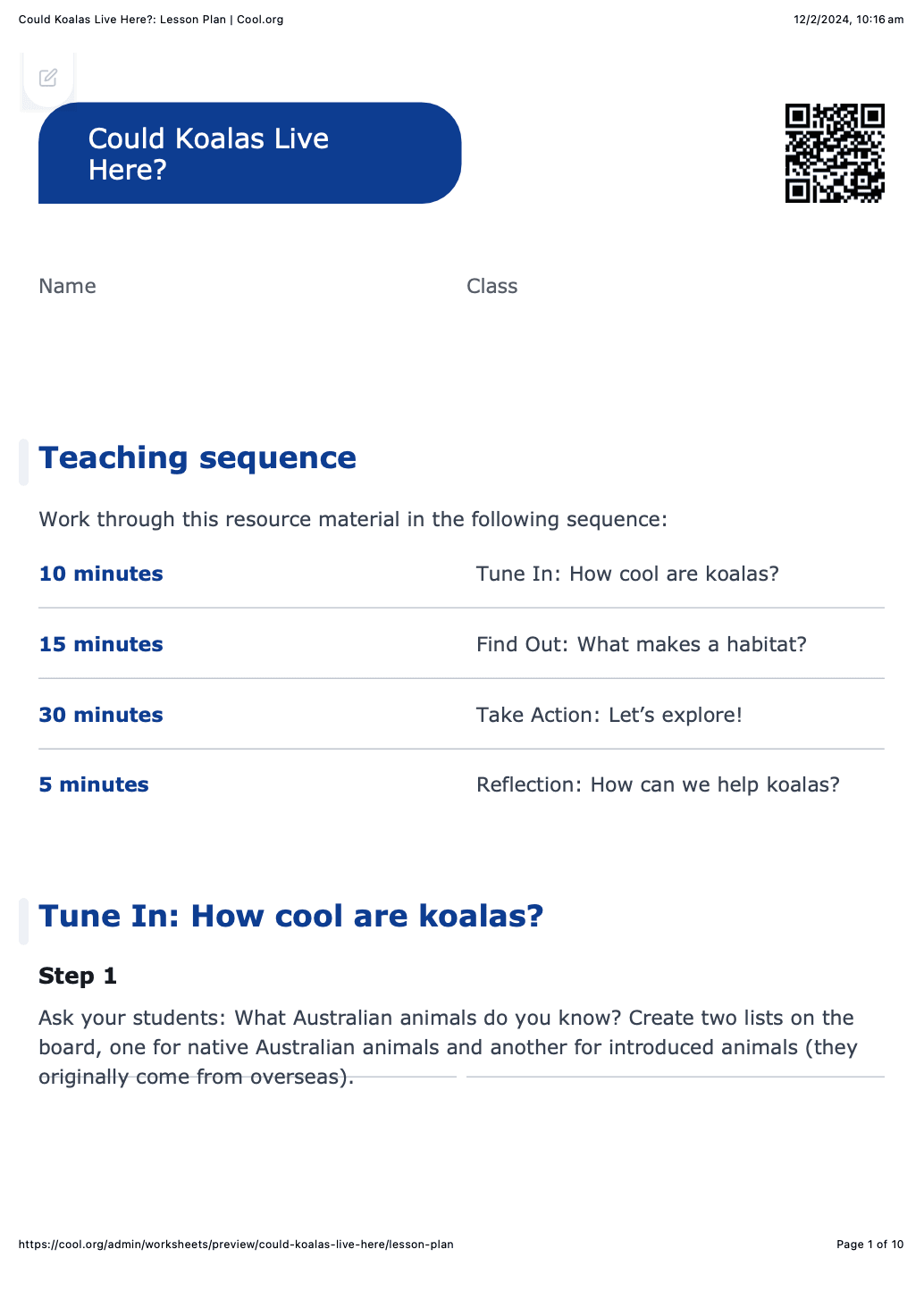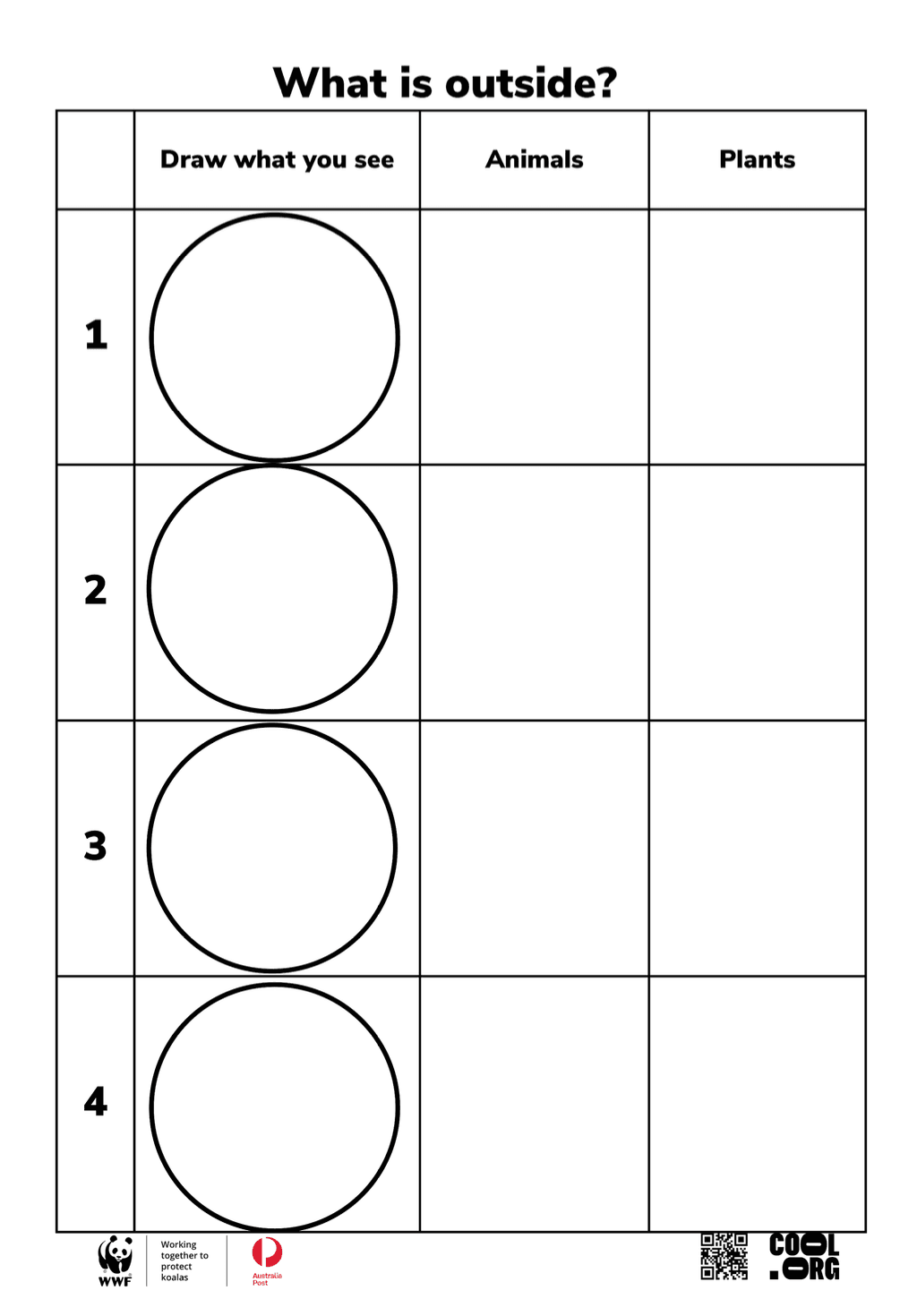
Could Koalas Live Here?
Lesson1 of 8 in this unit
PrimaryYear 1 - 2ScienceBiologyEnvironmentalBiodiversityConservation
Summary
Lesson guides and printables
Lesson Plan

What Is Outside Biodiversity Activity


Lesson Plan

What Is Outside Biodiversity Activity
